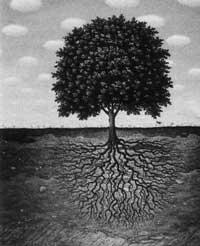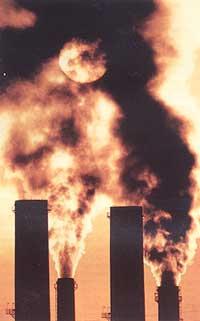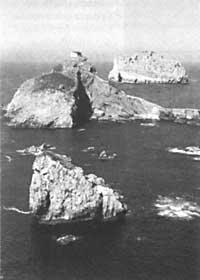Greenhouse effect and soil
1994/01/01 Elhuyar Zientzia Iturria: Elhuyar aldizkaria
According to scientists at the University of Michigan, increasing the concentration of carbon dioxide or CO2 in the atmosphere contributes to the growth of trees, but above all it is good for fertilizing the soil. Therefore, the greenhouse effect that has been considered so terrifying can benefit vegetation. James A. Teeri, in his study, suggests that increasing the proportion of CO2 in the atmosphere (regardless of temperature increase) can mean significant changes in the food cycle in the terrestrial ecosystem.

This result has been obtained through a laboratory test. Scientists have conducted the trial in three groups with heron plants. They worked in two controlled groups in small areas, where the CO2 concentration was 350 ppm (normal value of the atmosphere) and 700 ppm (concentration by 2030 if the planet is heated), respectively. The third team was in Afronto.
The results indicate that the herons of 700 ppm concentration had a double yield in photosynthesis. In addition, the root weight of these plants is 50% higher than normal concentrations (350 ppm). On the other hand, soil carbon and nitrogen mineralization rates were between 1.5 and 1.8 times higher than in other groups. James A. Teerie believes that the increase in the CO2 rate produces in the short term a reaction of self-fertilization.
Through photosynthesis, plants fix carbon dioxide in the atmosphere and create sugars, which increases their growth and has thicker roots. When the latter rot, they release dead cells and enrich the earth with carbon. This food is absorbed by soil microorganisms and mineralized nitrogen by soil fertilization.
These tests must be verified for three years. This self-fertilizing system can allow plant growth to reach its limit in a few years.

Gai honi buruzko eduki gehiago
Elhuyarrek garatutako teknologia





